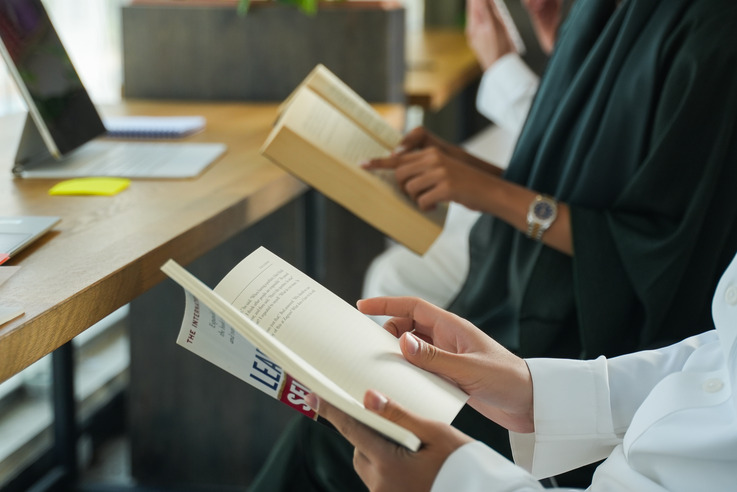
There’s no doubt that having instant access to information is one of the greatest advantages of our time. In the past, scholars had to travel long distances and endure hardship in search of knowledge. Today, we can access books, lectures, and academic research from anywhere in the world with just a few clicks.
But do we have the necessary skills to deal with this flood of information?
The speed at which we receive information can become a burden when people absorb opinions and data without scrutiny or critical analysis.
Between Abundance and Balance
With an overwhelming amount of information comes a growing number of sources. It’s important to remember that not everything circulating is 100% accurate—even if the majority seems to agree on it.
Many people on social media tend to repeat what others say or adopt opinions simply because influencers or public figures have shared them.
And when asked, “Where did you get this idea from?” the answer is often:
“I saw it on social media,” or “Everyone says so.”
This uncritical way of consuming information can slowly erode our independent thinking, causing us to echo others’ views unconsciously instead of building our own through thoughtful reflection.
A Neglected Fact That Shaped Public Opinion
Take, for example, the widespread claim that “breakfast is the most important meal of the day.”
Despite its popularity, there’s no definitive scientific evidence proving that breakfast is more important than other meals.
While studies suggest breakfast may be beneficial for some, the human body is fully capable of functioning well without it.
The origin of the idea:
This phrase was popularized in the 20th century by companies like Kellogg’s for purely commercial reasons—to promote cereal and oatmeal.
What started as a marketing campaign eventually became “common knowledge,” widely assumed to be scientifically validated.
Ask Yourself Before You Believe Anything:
Does this information truly serve me?
Does it align with my values?
Instead of accepting ideas at face value or repeating others’ views, we need to strike an intellectual balance through internal dialogue:
Asking questions and reflecting critically creates space for a more conscious, principle-based perspective—rather than one based on memorization or imitation.
Where Should This Rule Be Applied?
Of course, not all information is up for debate—reliable religious texts and peer-reviewed scientific research should be treated with appropriate trust.
But we should apply critical thinking especially when dealing with:
Conclusion
Every piece of information should be processed before it's accepted. Awareness and balance come from questioning—not from blind acceptance or rejection.
We don’t dismiss something just because it’s unfamiliar, and we don’t adopt a view simply because it's popular.
In a world overflowing with information, thinking clearly is your greatest filter.